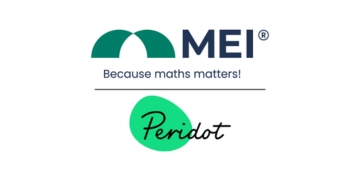The government has announced plans to make colleges and charities exempt from paying VAT when they share services.
It has been heralded as “unusual good news” for colleges and could lead to innovative savings through cross-college – or even cross-sector – partnerships.
In the Autumn Statement, which was published by the Treasury last week, it states: “Following consultation after Budget 2011, the Government will introduce a VAT exemption for services shared between VAT exempt bodies, including charities and universities.”
The Association of Colleges (AoC) say they “welcome the fact that action is being taken” in response to the consultation, which was held by HM Revenue & Customs (HMRC) in June.
“Among the tax changes scheduled for 2012 is a plan to change the way in which VAT is levied on universities, colleges and charities when they share services,” the AoC response to the paper states.
“Our experience in supporting shared service projects in colleges suggests that there will be long-term savings to match the loss of VAT income which results from these plans.”
Colleges are exempt from paying VAT when they deliver education and training.
However, they currently pay tax on some supplies and likewise have to charge students VAT for products which are tax eligible, such as the sales of coffee, and food to non-students
Bob Deed, a financial director and consultant, said: “The VAT exception for shared services is unusual good news for colleges. It removes an obstacle to joint working.
“However, the devil will be in the detailed requirements of the Revenue and Custom.
“Moreover, many college managers are wary of sharing anything with anybody in an increasingly competitive environment.”
Mr Deed added: “The Policy Costings issued alongside the Autumn Statement recognise that the probable take-up is uncertain and likely to be low for both colleges and charities.
“Nevertheless, the VAT exception may allow some brave colleges to innovate and generate some savings by working with other colleges or even organisations outside the sector such as charities, higher education institutions and local authorities.”
Colleges currently pay an estimated £210 million in irrecoverable VAT each year.
An AoC spokesperson said: “Colleges are able to reclaim some of the VAT which they pay to the extent that they have non-exempt business activity, but this is not normally more than five per cent or so.
“Some agricultural colleges have a high proportion of VAT-able business and might claim more like 20 per cent of their lost VAT.”
The HM Revenue & Customs consultation, titled ‘VAT: Cost Sharing Exemption’, said that by removing a VAT charge colleges would benefit from efficiency savings.
The report states: “It is designed for use by businesses and organisations unable to recover all of the VAT they incur on their purchases, such as charities, universities and further education colleges.”
It later adds that to be compliant with European legislation, colleges would need to become members of an independent ‘cost sharing group (CSG)’, which would be put in charge of supplying VAT exempt services.
The AoC said in response to the consultation that the exemption could provide the sector with annual savings of between £15 and £30 million.
“We would expect that many colleges would consider forming or joining a CSG; more than 100 colleges (from a total of 347) are already involved in Shared Services Projects,” the response states.
“Colleges inform us that they would consider transferring the following into a CSG: payroll; IT maintenance; data storage; finance functions; management information and systems; health and safety advice and guidance; procurement; facilities management and catering.”






This is beneficial news to FE colleges, universities, housing associations and the charitable sector (and banks and insurance companies too) who feel that shared services is a way forward for them, but have been thwarted by the VAT issue.
However it could be a blow to the private sector outsourced market unless HMRC change the rules. At the moment, EU Article 132 (1) (f) of the Principal VAT Directive (which is to be adopted as a result of this decision) does not allow the reclaim of VAT arising from outsourcing of services to private sector providers, and this will limit the use of outsourcing models to achieve cost efficiencies.
The VAT cost sharing exemption is likely to be a positive step forward for the sector as it should open up new possibilities for shared services amongst colleges. We’ve already seen a keen interest in shared services and we are currently working on a project in the FE sector estimated to make £250,000 worth of savings. I would expect to see more colleges keen to get started when the new VAT regime comes in. The changes will have a significant influence on both the types of shared service being explored and the scope of the ones already being discussed.